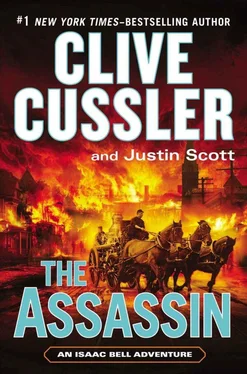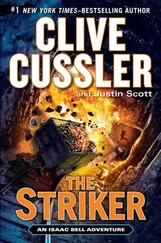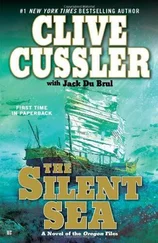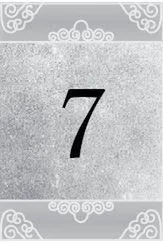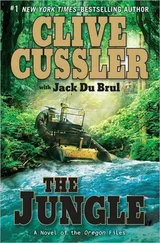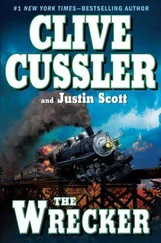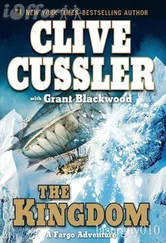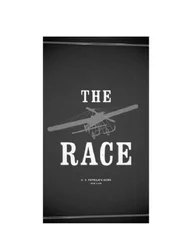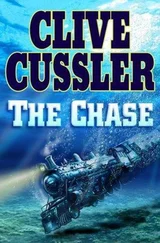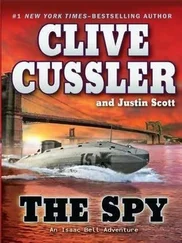“So no one saw the bars jacked open behind the canvas erected for an artist no one saw. Therefore, no one saw whether old Lapham jumped or was thrown.”
“Two men brought him there. Doctors.”
“Then we’ll start with the doctors.”
“Unfortunately, no.”
“Now what?” asked Bell.
“The Army hasn’t informed the police yet, so the news reporters don’t know, but Archie’s friend the half-wit colonel admitted the doctors vanished, and no one knows if they really were doctors or merely carrying medical bags.”
“Further suggesting it was murder,” said Bell.
Forrer repeated a saying Bell had heard from him often: “The job of the chief of Van Dorn Research is to sort fact from assumption.”
“You are provoking me toward sarcasm, Grady. If it wasn’t murder, then the men pretending to be doctors who delivered Lapham to the top of the monument carried a barn jack in their medical bag and left it with Lapham, who used it to jack open the bars so he could jump out the window.”
“Seen that way, it does suggest murder,” Forrer admitted.
“But like you just said, why go to so much trouble to kill one old guy? You could pop him on the head and say he fell off his chair… In fact, it’s less complicated than showy.”
“Did our assassin use the name of a famous sharpshooter, gambling that the colonel didn’t know he was a deserter?”
“Or is our assassin the deserter himself? He’s proven himself a champion marksman.” Bell shook his head. “It doesn’t make sense. Why would he draw such attention to himself if he’s been safely disappeared for three years?”
It struck Isaac Bell that the assassin’s remarkable shooting was merely a means. He had been thinking about him as a sniper. Now he had to think about him as a murderer who would use various means to kill.
“You were going to tell me the supposed artist’s name.”
Forrer nodded. “At this point, it moves into the realm of the bizarre. The artist called himself Isaac Bell.”
“What?”
“ He knows you’re working up the case, Isaac.”
Isaac Bell stood out of his chair and stalked through the empty lounge to the tall windows that overlooked West 44th Street. A thin smile formed on his lips.
“He’s calling you out!” said Forrer, who had grown up in the Deep South where calling a man out meant parking yourself on his front lawn with a gun in your hand until he came out shooting.
“Sounds that way.” Bell stared down at 44th Street. Carriages and motor limousines were returning for the night to the many stables and garages on the block.
Suddenly he stared unseeing out the window. “At last.”
“At last what?” Forrer asked.
“At last he’s made a mistake.”
“Thinking he can take you?”
“That, too.”
The tall detective turned abruptly and crossed the big room in several strides, his face alight with energy. “We’re finally getting something. Let’s find out who this champion really is.”
Forrer climbed out of his chair and rose to his full height. “I’ll go back to the office.” He kept a cot there, and Bell knew that after a short nap he would dive into his files. Assistants and apprentices arriving for work early would find their boss deep in newspapers and magazines and telegrams from the agency’s private wires.
Bell walked him down to the front door.
“There’s something else I want you to look into.”
“What’s that?”
“Edna Matters has an interesting theory.” He told him Edna’s theory about John D. Rockefeller’s newspaper code.
Forrer was intrigued by the idea of far-flung Rockefeller operatives reading the newspapers for his instructions. “Not to mention those hundreds of ‘correspondents’ spying for Standard Oil around the world, reading the papers and realizing what he wants information on.”
“Can you crack it?”
“It isn’t only what he says,” Forrer explained, “but when he says it. He’s referring to things they already know, telling them now we wait, now we get ready, now we move.”
“Check your files back to January when Rockefeller was in Cannes.”
“I’ll start earlier.”
“The phrase about watching children digging in the sand appears only in recent weeks.”
“I’ll pay particular attention to it. What do you want me to tell Mr. Van Dorn?”
“Tell him the assassin is not quite as professional as he thinks he is.”
“He’s going to ask me what you mean. I’d like to have an answer ready.”
“Tell him the assassin is a show-off.”
“What do you suppose he’ll make of that?”
“He’ll make of it what he taught me: Show-offs trip themselves up when they forget to watch where they’re going.”
“And where are you going, Isaac?”
“Westchester.”
“To see the great man?”
“To see what makes him tick… Here’s another thought for Mr. Van Dorn. If our assassin is willing to throw people out windows instead of shooting them, then he’s even less predictable than a professional sniper.”
They shook hands.
“Wait a minute! Do we know why Clyde Lapham was in Washington?”
Forrer said, “I assume—”
“I thought the Research Department never assumes.”
“I’ll get right on it… Hey, where are you going?”
Isaac Bell was striding into the street, waving a fistful of money at a chauffeur about to garage an Acme Opera Limousine. “Grady!” he called over his shoulder. “Do me a favor and send wires in my name to Nellie Matters and John D. Rockefeller. Apologize for breaking tomorrow’s appointments and ask would it be convenient to reschedule for the day after.”
“Now where are you going?”
“Back to Washington.”
“It’s the middle of the night.”
“I’ll make the Congressional Express.” He paid the yawning chauffeur to speed him to the railroad ferry at 42nd Street.
The one a.m. express was fully booked. Even his railroad pass couldn’t get him a berth. He whipped out his Van Dorn badge and sprinted to the fortified express car at the head of the train. There would be no berth with crisp sheets there, either, nor even a comfortable chair. But the express messenger, responsible for jewels, gold, bearer bonds, and banknotes, was glad to have the company of another armed guard. Bell waited until the train was safely rolling at sixty miles an hour, then made his bed on canvas sacks stuffed with a hundred thousand in National Bank notes. He awakened to stand watch, pistol drawn, at station stops in Philadelphia, Wilmington, and Baltimore.
* * *
“Greek fire saved Constantinople from the Arab navies, Mrs. McCloud.”
The widow who owned the coffee stand on Fulton Street was tied to a kitchen chair with a gag in her mouth. Bill Matters watched from the doorway.
The assassin, who was perched on the rim of the bathtub that shared the tiny space with the chair, a table, and a cookstove, loosened the gag and asked, “Who else did you tell?”
The woman was brave. “Wouldn’t you like to know.”
“Oh, I will know… Greek fire burned on water. In fact, it continues to burn even when you splash water on it. Which the invading Arabs discovered when it incinerated their ships. It was made by a secret formula as closely guarded as the workings of the Standard Oil Company. The recipe is long lost. But every guess of its ingredients includes naphtha.”
The assassin held up a gallon tin of naphtha, a familiar solvent sold in hardware stores, and punched holes in the top with a pocketknife.
“You’ll find naphtha in the Bible, Mrs. McCloud, a word to describe burning liquid. It’s mentioned in the Old Testament. The name meant ‘purification.’ Assyrians dipped their arrows in naphtha to shoot fire at their enemies.”
Читать дальше
